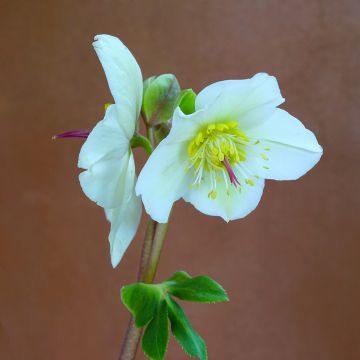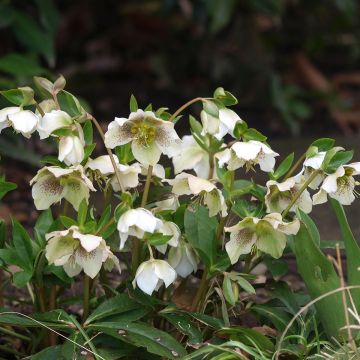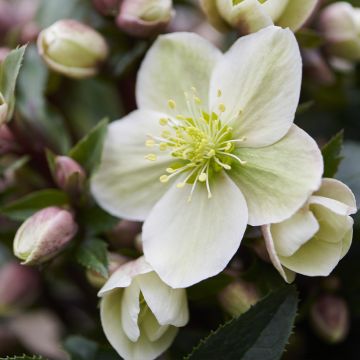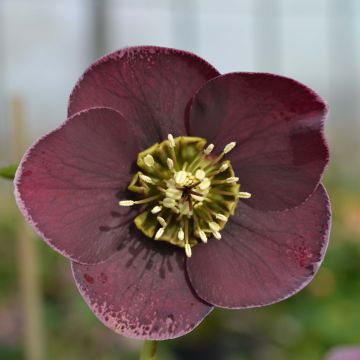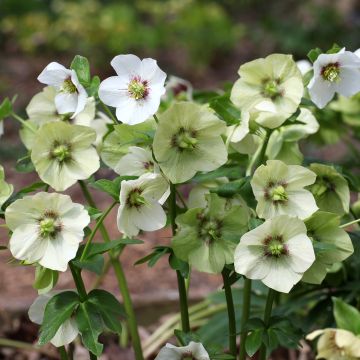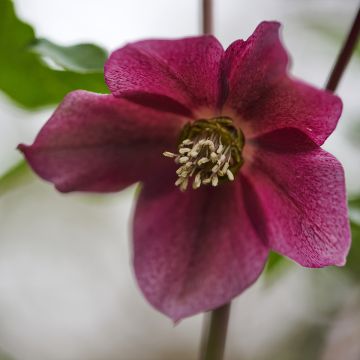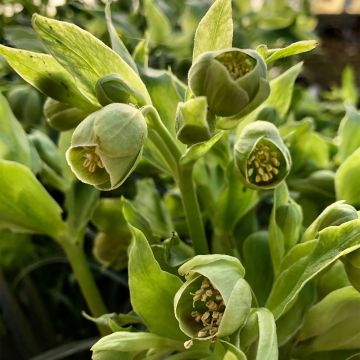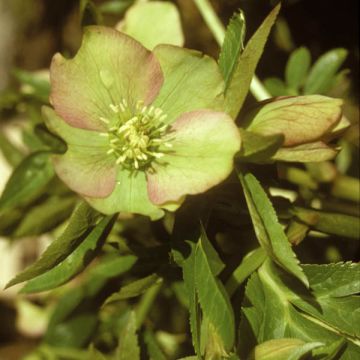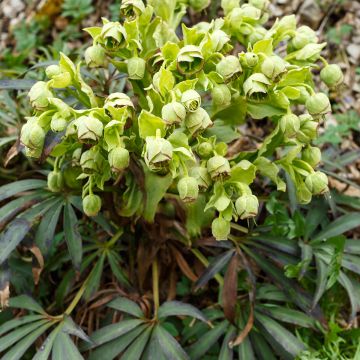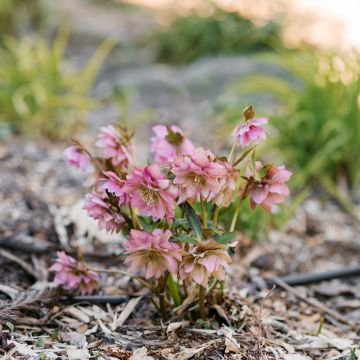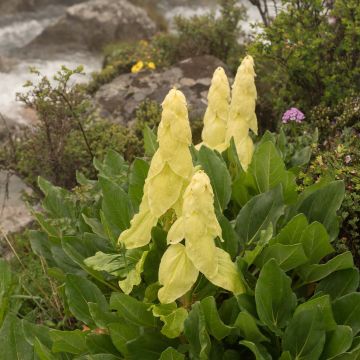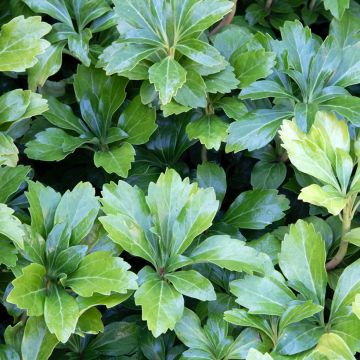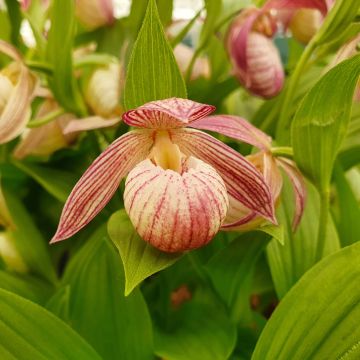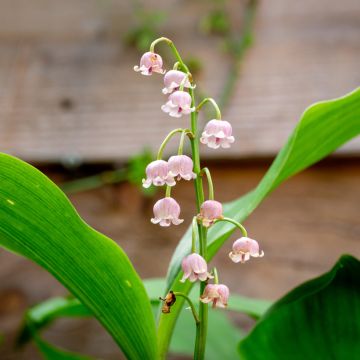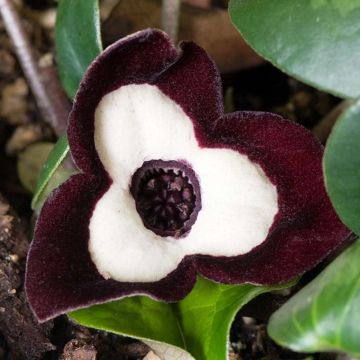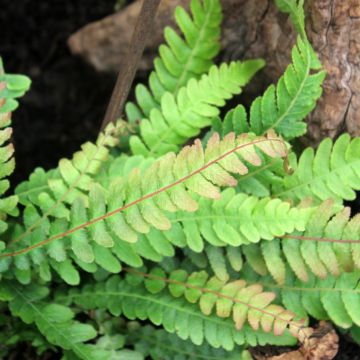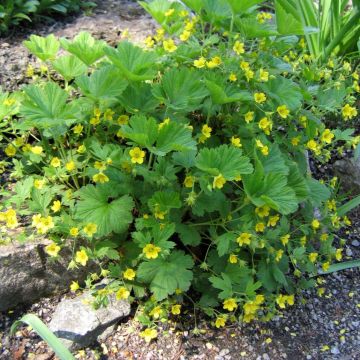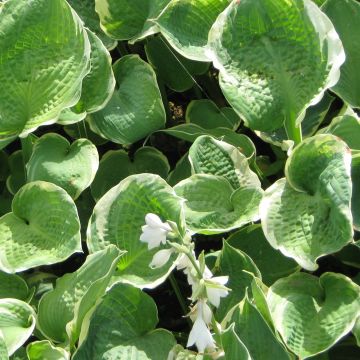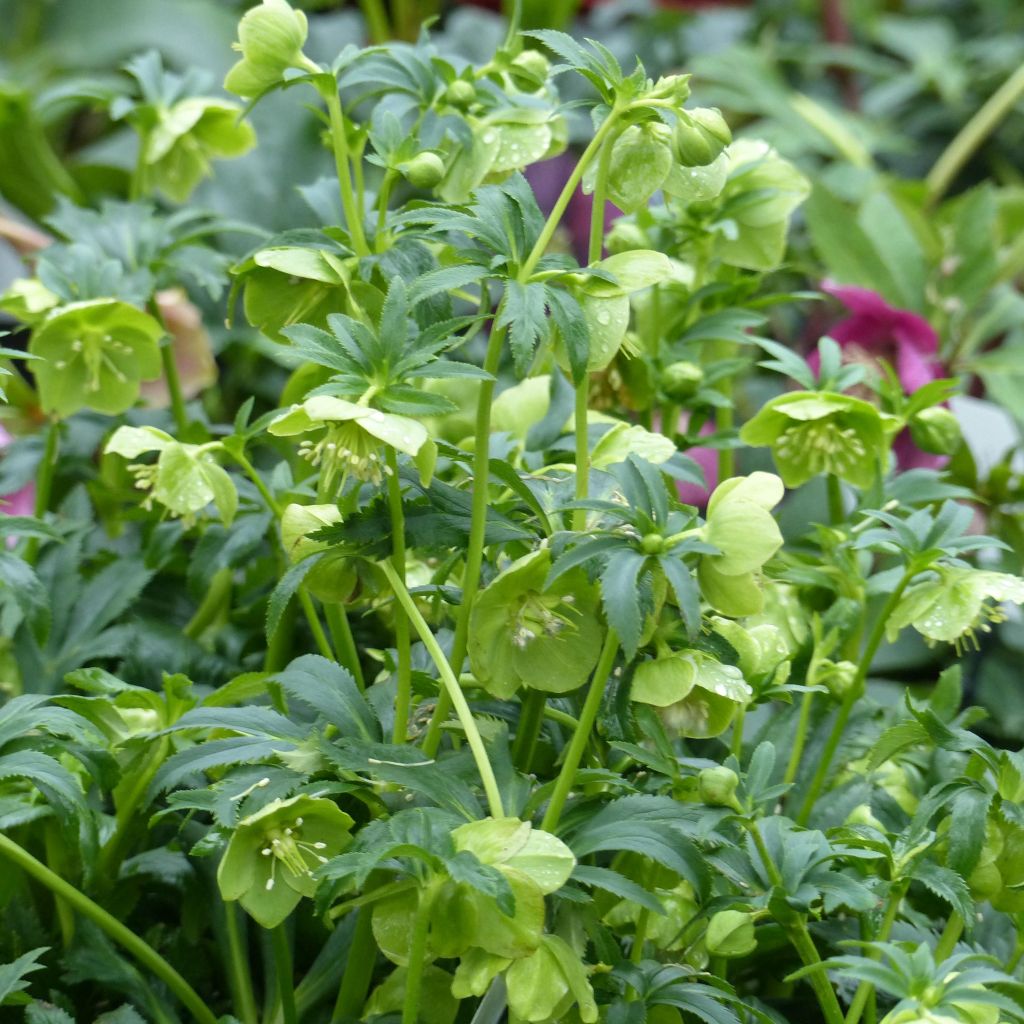

Helleborus multifidus subsp. bocconei
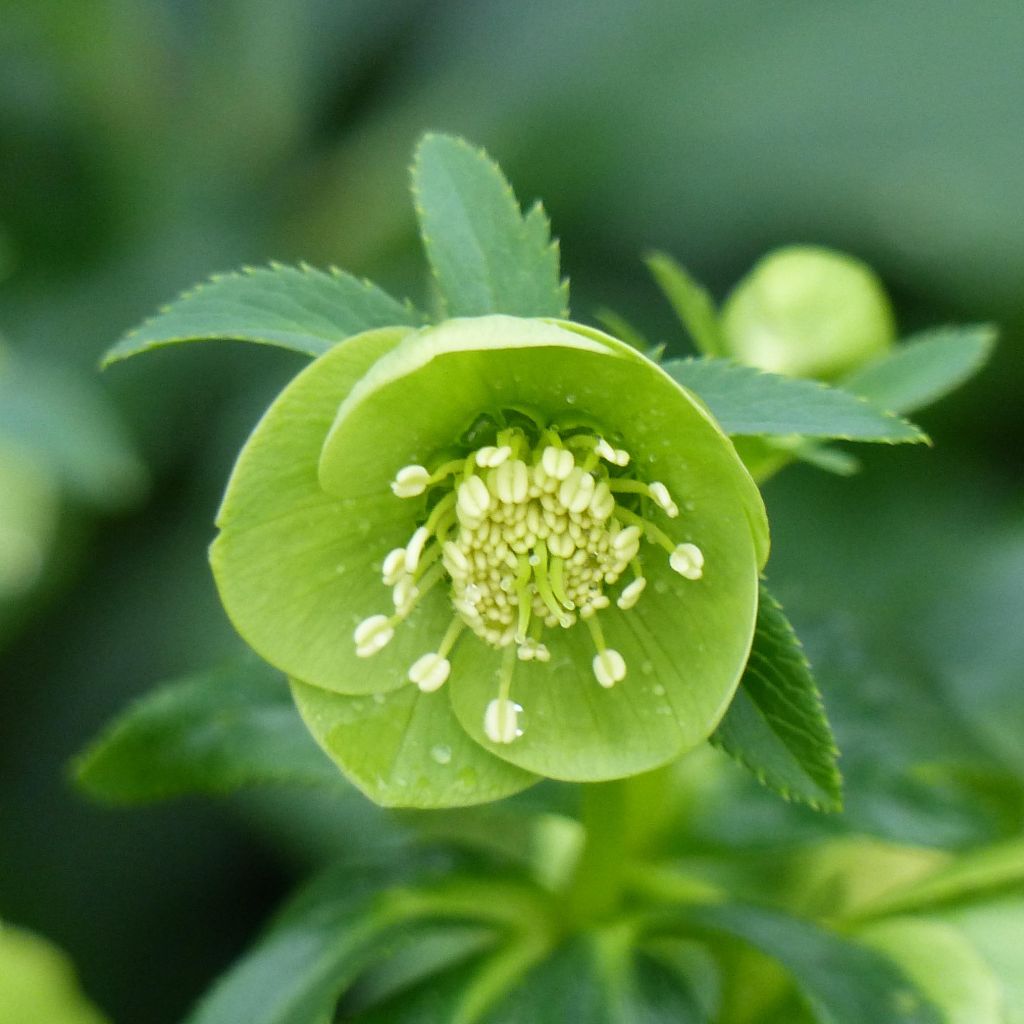

Helleborus multifidus subsp. bocconei
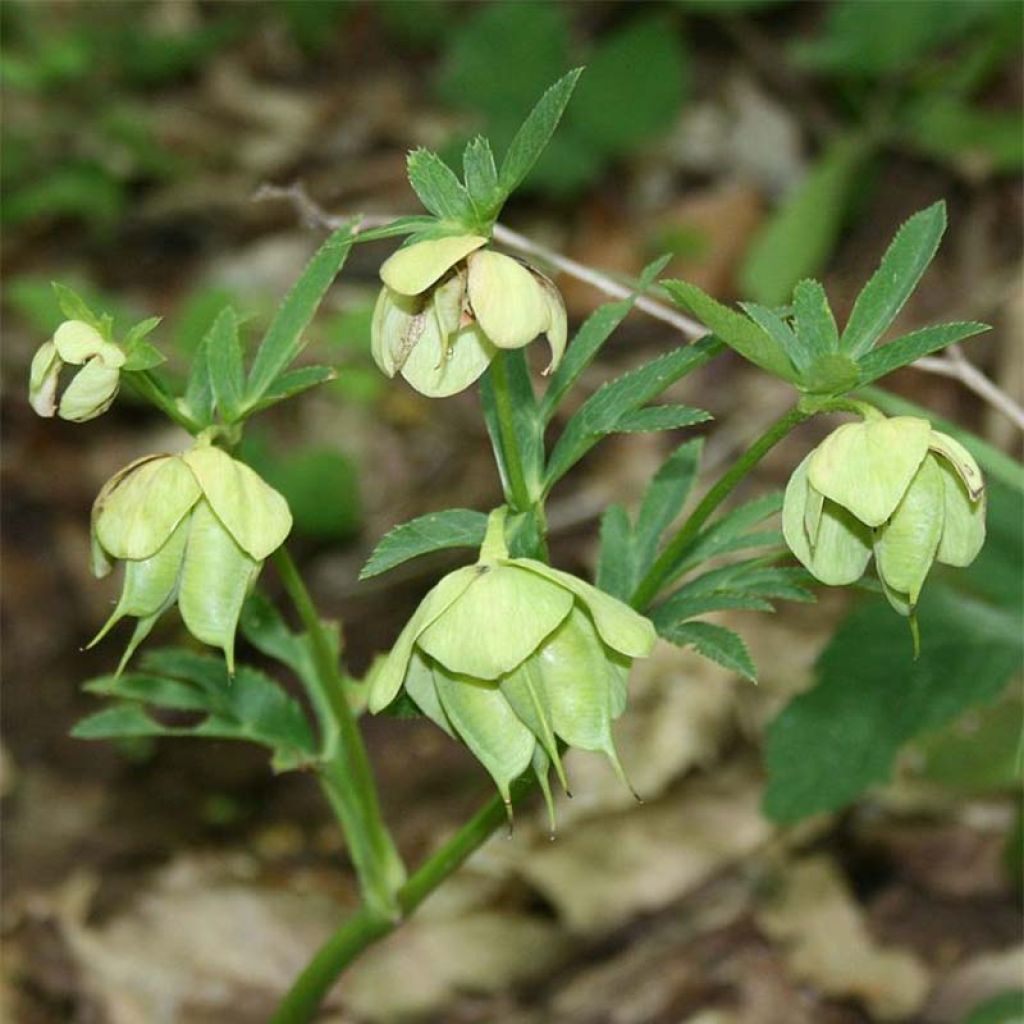

Helleborus multifidus subsp. bocconei
Helleborus multifidus subsp. bocconei
Helleborus multifidus ssp. bocconei
Green Hellebore
This item cannot be shipped to the selected country
Delivery charge from €5.90
More information
Schedule delivery date,
and select date in basket
This plant carries a 12 months recovery warranty
More information
We guarantee the quality of our plants for a full growing cycle, and will replace at our expense any plant that fails to recover under normal climatic and planting conditions.
From €5.90 for pickup delivery and €6.90 for home delivery
Express home delivery from €8.90.
Does this plant fit my garden?
Set up your Plantfit profile →
Description
Helleborus multifidus subsp. bocconei is a botanical hellebore rare in cultivation, mainly grown for its unusual deciduous foliage, curiously cut and toothed, very ornamental from spring to autumn. Its simple flowers, with a delicate elderflower fragrance, are more or less round or star-shaped, apple green in colour, becoming almost white at maturity. It is a robust species that likes semi-shade and well-drained soils, even limestone, but hates icy winds. A collector's plant, to be planted not far from a walkway, even in a large pot, to enjoy its extraordinary foliage in the warmer months and its curious fragrant winter flowering!
Originally from regions ranging from Sicily to southern and central Italy, Helleborus multifidus ssp bocconei is a perennial plant of the buttercup family. It is one of the many subspecies of H.multifidus, differentiated by their region of origin and morphological differences, mainly affecting the foliage. This Hellebore is fairly variable in appearance, sometimes not very long-lasting, moderately hardy and tolerates the presence of limestone in the soil and summer drought. It naturally grows in scrubland, copse and under the canopy of sparse forests. The plant forms a bushy clump, 30cm (12in) tall (even more in cultivation), and 50 to 60cm (20 to 24in) wide with deciduous leaves that emerge from the ground early in spring. These basal leaves are palmate, divided into 5 to 7 leaflets themselves subdivided, so that each one has about 20 segments with strongly toothed edges, variable in shape and medium matt green.
Between January and March, floral stems grouping 5 to 7 single flowers appear, 3 to 4 cm (1 to 2in) or more in diameter. These are cup-shaped flowers, inclined downwards, with sepals that are rounded or pointed, giving the corolla a more or less star-like appearance. Their colour varies from fairly intense green when they open, to apple green, and then whitish-green on the edges. Their fragrance evokes that of elderflowers. They are inclined downwards, allowing water to slide off like an umbrella to protect the heart of the flower from rotting. Hellebore does not like to be moved once established, with young plants sometimes taking 3 years to flower. Ants sow the abundant seed in April-May. They germinate easily after exposure to cold the following winter.
Use hellebores as elements of an ancient tapestry, mixing them with woodland plants in brighter colours. This Hellebore, the Italian version of Christmas roses and traditional Lenten roses, is a rare species that can be appreciated even in summer for its elegant foliage. For this purpose, it can be planted at the base of Clethra or Japanese maples, which will provide beneficial shade in summer without suffocating it, in the company of Asarum europaeum, variegated periwinkles or dwarf hostas. It can be planted in groups, like a bouquet, near the entrance of the house, in a shaded location, or in a large pot, to enjoy its fragrant and early flowering up close.
Report an error about the product description
Helleborus multifidus subsp. bocconei in pictures
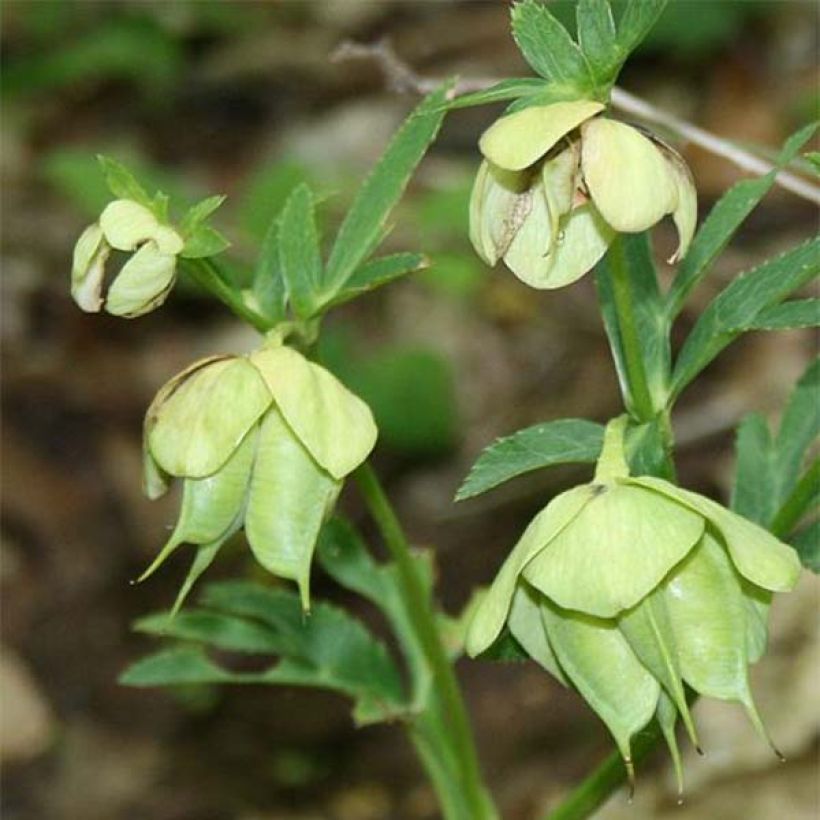

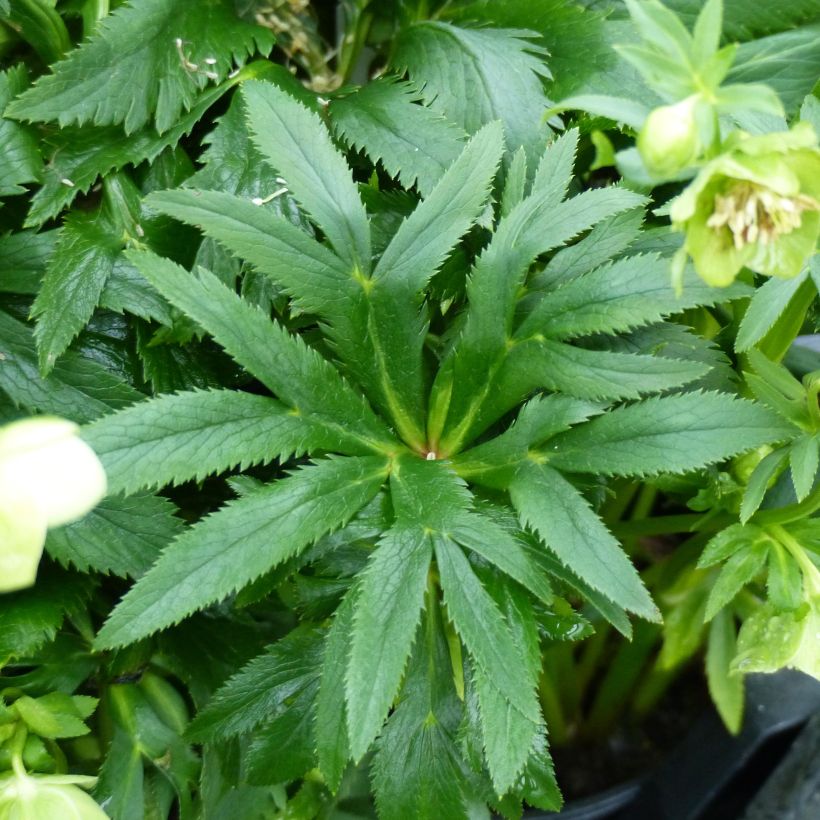

Flowering
Foliage
Plant habit
Botanical data
Helleborus
multifidus
ssp. bocconei
Ranunculaceae
Green Hellebore
Western Europe
Other Hellebore A to Z
Planting and care
Helleborus multifidus subsp. bocconei grows in any neutral to chalky soil, preferably deep and loose, well-drained, light, in partial or light shade, sheltered from cold and prevailing winds. In the north, reserve exposures sheltered from the cold, without scorching sun. Further south, once well established, it will often do without watering in summer, except in case of prolonged drought. This perennial should be planted in early autumn in mild climates, and spring in cooler climates. It thrives in deeply worked soil mixed with leaf compost. Water well after planting and add a layer of mulch 2 to 5 cm (1 to 2in) thick. Regularly remove faded leaves to improve flowering. Make sure to respect a planting distance of 40 to 50 cm (16 to 20in) between each plant to promote their development. Helleborus multifidus does not appreciate freezing winds or stagnant water that can rot its roots.
Propogate by sowing fresh seeds in April-May. The seeds will only germinate after the passage of winter's cold. The young plants will only flower after 5 to 6 years.
Planting period
Intended location
Care
This item has not been reviewed yet - be the first to leave a review about it.
Shade-loving perennials
Haven't found what you were looking for?
Hardiness is the lowest winter temperature a plant can endure without suffering serious damage or even dying. However, hardiness is affected by location (a sheltered area, such as a patio), protection (winter cover) and soil type (hardiness is improved by well-drained soil).

Photo Sharing Terms & Conditions
In order to encourage gardeners to interact and share their experiences, Promesse de fleurs offers various media enabling content to be uploaded onto its Site - in particular via the ‘Photo sharing’ module.
The User agrees to refrain from:
- Posting any content that is illegal, prejudicial, insulting, racist, inciteful to hatred, revisionist, contrary to public decency, that infringes on privacy or on the privacy rights of third parties, in particular the publicity rights of persons and goods, intellectual property rights, or the right to privacy.
- Submitting content on behalf of a third party;
- Impersonate the identity of a third party and/or publish any personal information about a third party;
In general, the User undertakes to refrain from any unethical behaviour.
All Content (in particular text, comments, files, images, photos, videos, creative works, etc.), which may be subject to property or intellectual property rights, image or other private rights, shall remain the property of the User, subject to the limited rights granted by the terms of the licence granted by Promesse de fleurs as stated below. Users are at liberty to publish or not to publish such Content on the Site, notably via the ‘Photo Sharing’ facility, and accept that this Content shall be made public and freely accessible, notably on the Internet.
Users further acknowledge, undertake to have ,and guarantee that they hold all necessary rights and permissions to publish such material on the Site, in particular with regard to the legislation in force pertaining to any privacy, property, intellectual property, image, or contractual rights, or rights of any other nature. By publishing such Content on the Site, Users acknowledge accepting full liability as publishers of the Content within the meaning of the law, and grant Promesse de fleurs, free of charge, an inclusive, worldwide licence for the said Content for the entire duration of its publication, including all reproduction, representation, up/downloading, displaying, performing, transmission, and storage rights.
Users also grant permission for their name to be linked to the Content and accept that this link may not always be made available.
By engaging in posting material, Users consent to their Content becoming automatically accessible on the Internet, in particular on other sites and/or blogs and/or web pages of the Promesse de fleurs site, including in particular social pages and the Promesse de fleurs catalogue.
Users may secure the removal of entrusted content free of charge by issuing a simple request via our contact form.
The flowering period indicated on our website applies to countries and regions located in USDA zone 8 (France, the United Kingdom, Ireland, the Netherlands, etc.)
It will vary according to where you live:
- In zones 9 to 10 (Italy, Spain, Greece, etc.), flowering will occur about 2 to 4 weeks earlier.
- In zones 6 to 7 (Germany, Poland, Slovenia, and lower mountainous regions), flowering will be delayed by 2 to 3 weeks.
- In zone 5 (Central Europe, Scandinavia), blooming will be delayed by 3 to 5 weeks.
In temperate climates, pruning of spring-flowering shrubs (forsythia, spireas, etc.) should be done just after flowering.
Pruning of summer-flowering shrubs (Indian Lilac, Perovskia, etc.) can be done in winter or spring.
In cold regions as well as with frost-sensitive plants, avoid pruning too early when severe frosts may still occur.
The planting period indicated on our website applies to countries and regions located in USDA zone 8 (France, United Kingdom, Ireland, Netherlands).
It will vary according to where you live:
- In Mediterranean zones (Marseille, Madrid, Milan, etc.), autumn and winter are the best planting periods.
- In continental zones (Strasbourg, Munich, Vienna, etc.), delay planting by 2 to 3 weeks in spring and bring it forward by 2 to 4 weeks in autumn.
- In mountainous regions (the Alps, Pyrenees, Carpathians, etc.), it is best to plant in late spring (May-June) or late summer (August-September).
The harvesting period indicated on our website applies to countries and regions in USDA zone 8 (France, England, Ireland, the Netherlands).
In colder areas (Scandinavia, Poland, Austria...) fruit and vegetable harvests are likely to be delayed by 3-4 weeks.
In warmer areas (Italy, Spain, Greece, etc.), harvesting will probably take place earlier, depending on weather conditions.
The sowing periods indicated on our website apply to countries and regions within USDA Zone 8 (France, UK, Ireland, Netherlands).
In colder areas (Scandinavia, Poland, Austria...), delay any outdoor sowing by 3-4 weeks, or sow under glass.
In warmer climes (Italy, Spain, Greece, etc.), bring outdoor sowing forward by a few weeks.

































